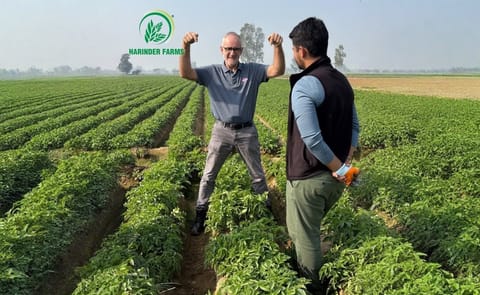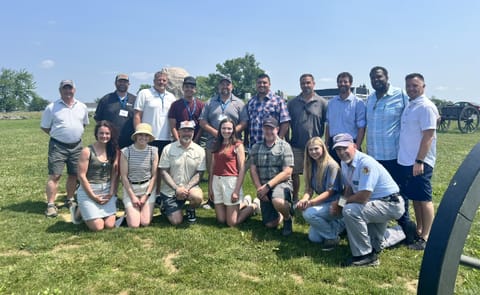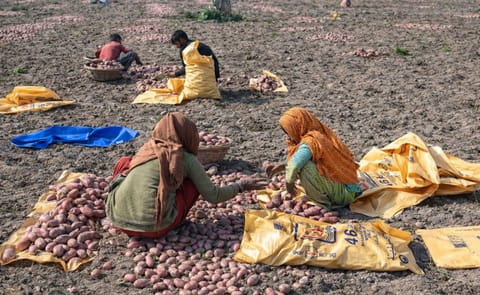Dr Ingo Hein is a senior scientist based at the Cell and Molecular Sciences group of the James Hutton Institute
Four late blight 'resistancy' genes in current commercial potato varieties already defeated by Phytophthora Infestans

Recent research at the James Hutton Institute suggests that limited genetic differences in potato lineages has left British and American spuds vulnerable to late blight, the disease that caused the Irish potato famine.
Plant scientists at the James Hutton Institute and the University of Dundee have revealed that commercial potato crops are under constant threat of late blight, the pathogen behind one of Europe’s most devastating famines, but wild potato genes might be the cure.
Dr Ingo Hein, a senior scientist based at the Institute's Cell and Molecular Sciences group, says that by using tools his team has developed they could put potato breeders at ease, helping farmers produce fit fritters instead of the frail.
Ingo Hein:
Plant scientists at the James Hutton Institute and the University of Dundee have revealed that commercial potato crops are under constant threat of late blight, the pathogen behind one of Europe’s most devastating famines, but wild potato genes might be the cure.
Dr Ingo Hein, a senior scientist based at the Institute's Cell and Molecular Sciences group, says that by using tools his team has developed they could put potato breeders at ease, helping farmers produce fit fritters instead of the frail.
Ingo Hein:
“By using the dRenSeq and PenSeq tools we have developed here in Scotland in collaboration with peers at the Sainsbury Laboratory in Norwich,they are able for the first time ever to track the historical and geographical patterns of resilient genes in American and British potatoes.”Dr Hein has been awarded £625k in funding from the Biotechnology and Biological Sciences Research Council (BBSRC) to continue identifying the more resilient potatoes with industry partners McCain Foods, Greenvale and James Hutton Limited.
“Our preliminary data suggests that the most commercially valuable potato varieties grown in the UK and US contain a maximum of four genes already defeated by the late blight pathogen, P. infestans.”
“Crucially, we have also been able to identify new genes that remain effective against this disease which are not current used in commercial potato production and so by combining these effective genes we can prolong the longevity of individual resistances to the disease and reduce the need for chemical sprays on plants.”
“This is highly relevant for breeding as currently the control methods for late blight in most parts of the world are based mainly on the use of chemical sprays which can be environmentally hazardous and expensive.”
Like to receive news like this by email? Join and Subscribe!
Get the latest potato industry news straight to your WhatsApp. Join the PotatoPro WhatsApp Community!
Highlighted Company
Sponsored Content
Sponsored Content
Sponsored Content
Sponsored Content












